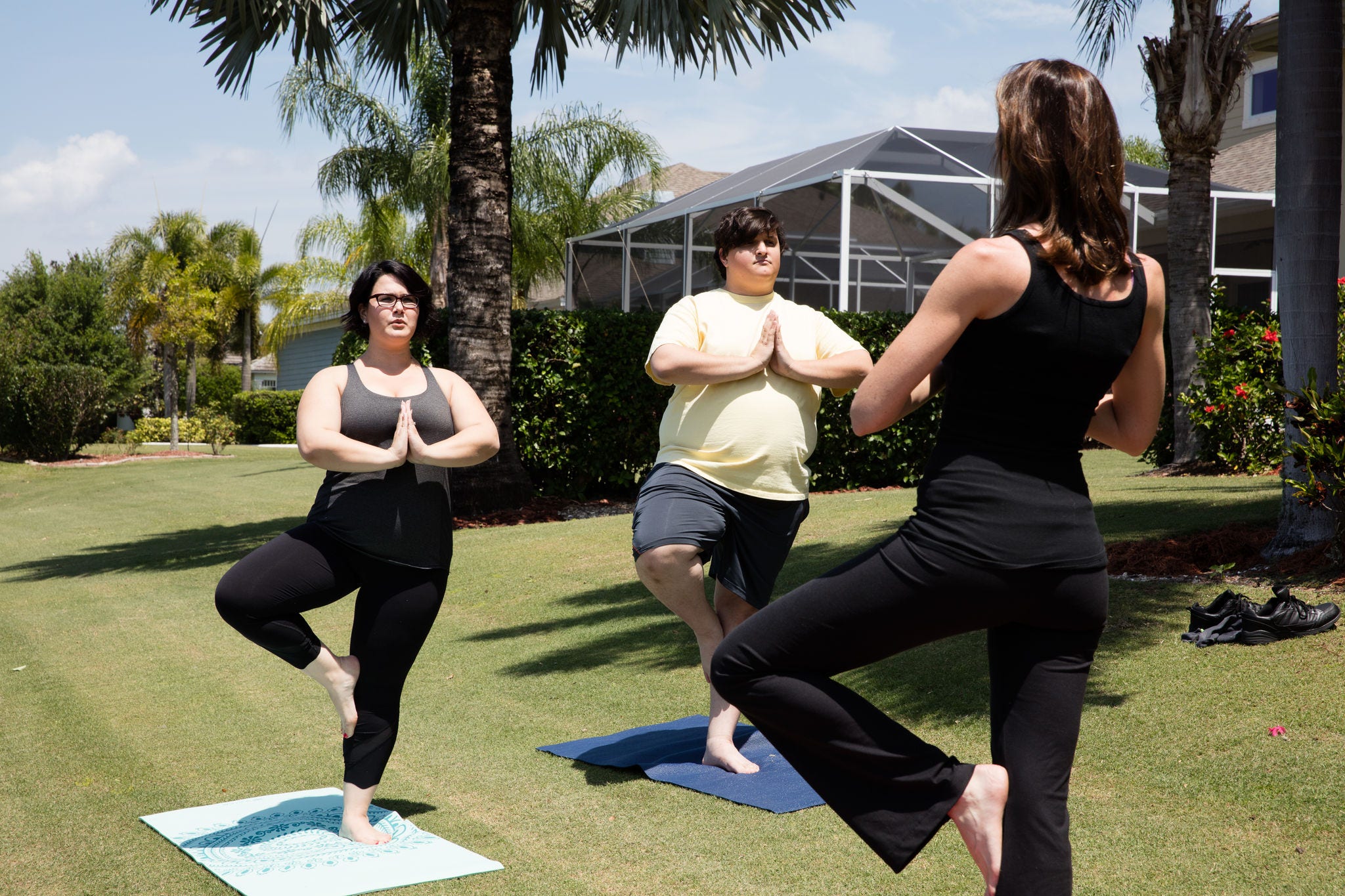Healthy Lifestyle Improves Survival from Obesity-Related Cancers
CPS-II Nutrition data shows that people with obesity-linked cancers lower their risk of death by sticking with the ACS Nutrition & Physical Activity Guideline.

Credit Obesity Action Coalition
Nearly 42% of adults in the United States have obesity. Obesity not only increases the risk of developing cancer, but it may also affect how well cancer survivors do after treatment. For instance, survivors with cancers related to obesity often face higher risks for cancer recurrence and death—not just from cancer, but also from chronic diseases related to obesity like heart disease and diabetes.
The risk for developing an obesity-related condition is closely tied to lifestyle choices that may affect body weight: what you eat, how much alcohol you drink, and how physically active you are. Recognizing this, the American Cancer Society (ACS) created a Guideline for Diet and Physical Activity for Cancer Prevention. The benefits of following the ACS Prevention Guideline are well-supported in preventing cancer.
To help survivors with a history of cancer, the ACS created the Nutrition and Physical Activity Guideline for Cancer Survivors, focusing on behaviors that promote overall health and longevity after a diagnosis of cancer. (They also created a Patient Page in the ACS flagship research publication, CA: A Cancer Journal for Clinicians, that is easier for the average person to understand.)
It’s been less clear whether following the ACS Survivor Guideline, which was updated in 2022, improves long-term survival.
With cancer survivorship on the rise, the question researchers are now urgently asking is: Can lifestyle choices, especially ones that may help control body weight, help survivors live longer and reduce their chances of dying from cancer?
Study participants with an obesity-related cancer lived longer when their lifestyle choices closely matched the ACS Nutrition and Physical Activity Guideline for Cancer Survivors.
That’s the focus of a major study published in JNCI: Journal of the National Cancer Institute led by American Cancer Society (ACS) Population Science researchers Ying Wang, PhD, and Alpa Patel, PhD.
The research team aimed to learn whether survivors with an obesity-related cancer could affect their risk of death from any cause, and death from cancer, in particular, based on how well they followed the ACS Nutrition and Physical Activity Guideline for Cancer Survivors.
This study sends a hopeful message: Cancer survivors can take charge of their health. A healthy lifestyle—avoiding obesity, staying active, and eating well—may help survivors live longer, especially after a diagnosis of an obesity-related cancer .”

Dr. Wang and her colleagues used data from 3,742 non-smoking participants in the long-running Cancer Prevention Study-II (CPS-II) Nutrition Cohort, which has tracked the health behaviors and outcomes of tens of thousands of Americans since the 1990s.
The participants studied had been diagnosed with 1 of 13 obesity-related cancers between 1992 and 2002. Participants were followed, via surveys, with a median follow-up of almost 16 years, and up to 21 years.
Obesity-Related Cancers
- Postmenopausal breast cancer in females
- Colon or rectal cancer
- Endometrial cancer
- Esophageal cancer
- Gallbladder cancer
- Kidney cancer
- Liver cancer
- Meningioma
- Multiple Myeloma
- Ovarian cancer
- Pancreatic cancer
- Stomach cancer
- Thyroid cancer
Researchers gave each participant a score based on how closely their lifestyle aligned with the 4 core behaviors emphasized in the ACS Guideline for Diet and Physical Activity for Cancer Survivors:
- Avoid obesity: Make efforts to achieve and maintain a healthy body weight.
- Be physically active.
- Eat a healthy diet that prioritizes fruits, vegetables, and whole grains, and that avoids added sugars and red and processed meats.
- Limit alcohol consumption.
The researchers also determined participants’ adherence to the Guideline before the diagnosis of cancer.
Close Guideline-followers had better survival than loose followers among people with an obesity-related cancer.
The researchers found that participants who closely followed the Survivor Guideline recommendations had significantly better survival outcomes compared to participants who only followed the Guideline a little.
Specifically, close followers of the guidelines after a cancer diagnosis had:
- A 24% lower risk of dying from any cause.
- A 33% lower risk of dying from heart disease, which is a major cause of death among cancer survivors.
- A 21% lower risk of death from cancer.
If you’ve been diagnosed with an obesity-related cancer, use these study findings to help motivate you to follow the ACS Survivor Guidelines.
Keep working to lose weight after a diagnosis of an obesity-related cancer.
People who are able to avoid obesity are less likely to die. But don't despair . . .
Everyone can benefit from exercise, regardless of body size.
Physical activity offers the strongest protection from dying of any cause among cancer survivors with a healthy body weight—or those with overweight or obesity.
You’ve got a fresh chance—take it.
Survivors who worked to improve healthy habits after the cancer diagnosis had a lower risk of dying from heart disease even if they hadn’t followed the Guidelines before the cancer diagnosis.
Stick with healthy habits after a cancer diagnosis.
Cancer survivors who followed the Guidelines closely both before and after the cancer diagnosis had a lower risk of dying.
Focus on movement.
The researchers found no overall association between diet score and mortality outcomes.
This study expands the existing evidence that obesity is a significant risk factor for both the incidence and prognosis of cancer.
This was the first large US study to show that following the ACS Nutrition and Physical Activity Guideline for Cancer Survivors is linked to better survival outcomes, especially among those with obesity-related cancers.
The study's strengths include a large sample size, long follow-up period, and focus on survivors of cancers for which lifestyle plays a particularly important role.
While the study is observational and cannot establish causality, the results offer valuable evidence-based guidance for clinicians, survivors, and caregivers for life-preserving lifestyle choices after a cancer diagnosis.
In summary, this research strongly supports the idea that adopting a healthy lifestyle after cancer matters—and that even small steps toward better diet, activity, and weight management may add meaningful years to the lives of cancer survivors.
Other co-authors of the study from the ACS are: Christina Newton, MSPH; Marjorie McCullough, ScD, RD; Lauren Teras, PhD; Clara Bodelon, PhD, MS; Erika Rees-Punia, PhD, MPH; Carolyn Um, PhD, MPH, RD; and Senior Vice President of Cancer Prevention Laura Makaroff, DO.
- Helpful resources
- For researchers
American Cancer Society news stories are copyrighted material and are not intended to be used as press releases. For reprint requests, please see our Content Usage Policy.




